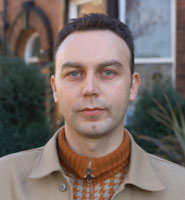Professor Paul Statham from the Department of Sociology is to lead a €1.4m research project that will look at how different traditions of national identity, citizenship and church-state relations in six European countries have shaped those countries’ policy efforts to incorporate Islam.
Funded by the European Union’s Framework Seven Programme (FP7), the project will examine the consequences of existing approaches on the patterns of cultural distance and interaction that have evolved between Muslim migrants and the societies where they have settled.
Entitled ‘Finding a Place for Islam in Europe: Cultural Interaction between Muslim Migrants and Receiving Societies’ (EURISLAM) and involving partners in Belgium, France, Germany, the Netherlands and Switzerland, the project, which will run until 2012, will study migrant groups of Moroccans, Pakistanis, Turks and former Yugoslavs.
The project will examine how Muslims are portrayed in the mass media and relate this to migrant groups’ own perceptions, identities and cultural behaviour. This approach will allow the research team to examine the extent to which mass-media representations of ‘culture clashes’ and Muslims’ cultural demands are similar to, or different from, the experiences of ordinary people. It will also show to what extent public discourses over the position of Islam – often repeated in academic and policy debates – are representative of the real demands and cultural issues that confront Muslims, and over which they have concerns and opinions.
Speaking about the project, Professor Statham said:
‘A problem with much existing research is the tendency to reify “Muslims” as a single group with common characteristics. By comparing several Muslim groups, we aim to move away from references to a single unified “Muslim experience” in liberal democracies, which can be stereotypical, and look instead at empirically informed accounts of the variety of Muslims’ lives and cultural experiences in Western Europe.’
